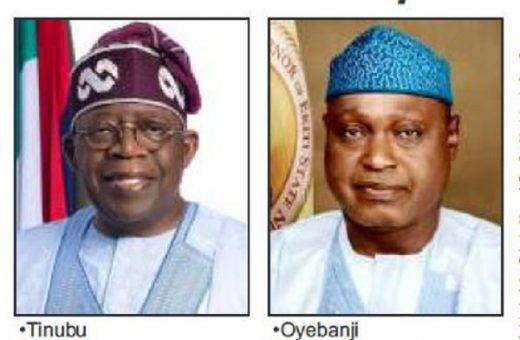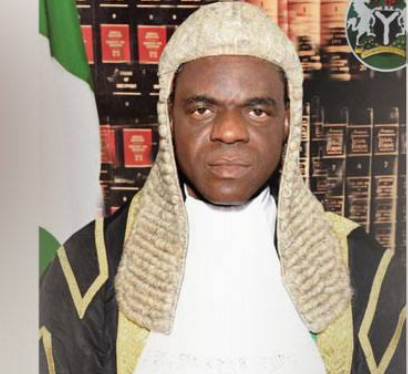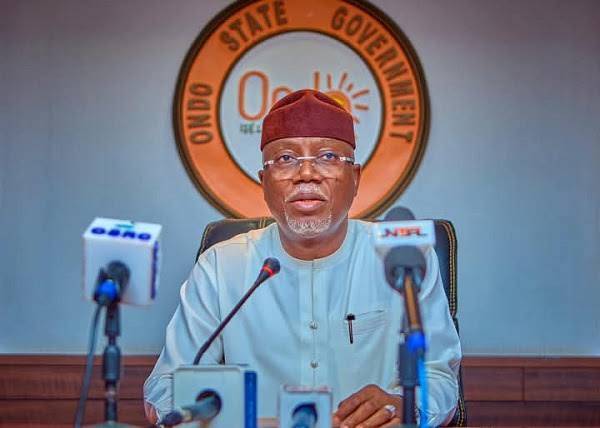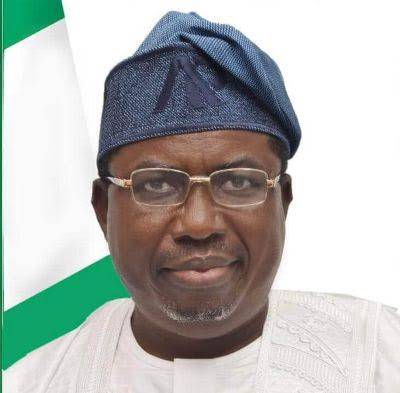By Segun Ayobolu
Given the perceived distance of the federal government from the grassroots where communities are located in the states and local government areas and the yet unrealized efforts to ensure effective financial and administrative autonomy to guarantee the efficacy of local government service delivery, the states still remain the most critical units of governance for the impactful delivery of democratic dividends to the populace. Thus, the performance and developmental strides of State governors are central to the electoral prospects not only of the chief executives at the state level but also of President Tinubu and other contenders for power at the centre in the forthcoming critical 2027 presidential elections. An interesting feature of centre-state relations under the Tinubu presidency over the last two years is the near quadrupling of revenue allocation to the states as a consequence of the courageous removal of fuel subsidy by the President immediately after being sworn into office.
It is thus not surprising that most governors, including those belonging to opposition parties, have hardly expressed any negative disposition to the re-election of the President for a second term while we have had the wholesale transplantation of the governance and party structures of previously solidly Peoples Democratic Party (PDP) states in Delta and Akwa-Ibom to the ruling All Progressives Congress (APC). In taking such a radical step of drastically reshaping the partisan colouration of their states, governors Sheriff Oborevwori and Umo Eno, respectively, and the political leadership of their states have cited the favourable inclination of the Tinubu administration to their states and the resultant developmental outcomes.
Ekiti State, one of the most politically sophisticated and educationally advanced sub-national jurisdictions in the country, offers an example of the electorally significant impact of centre-state amity for the re-election prospects both of President Tinubu at the presidency and Governor Biodun Abayomi Oyebanji (BAO) in the critical South-West state. Although both Tinubu and Oyebanji belong to the APC, the truth of the matter is that the struggle for electoral dominance in the state has always been a grim and tight battle between the progressives in their various mutations from the defunct Alliance for Democracy (AD), the Action Congress of Nigeria (ACN) to the current APC and the PDP. Under Governor Oyebanji ‘s leadership astuteness, however, we are witnessing a rare coalescence of disparate political forces across party lines in support of continuity in office of Tinubu and BAO.
Next year, Oyebanji heads to the polls to seek the electorate’s mandate for a second term, while aggrieved political elements within and beyond the ruling APC are already experimenting with possible coalitions to oust Tinubu from power two years before elections are due at the centre in 2027. It is obvious from unfolding events that Ekiti is one state where the politics of coalition to oust the incumbents at the centre and in the state, especially through the emerging mechanism of the African Democratic Congress (ADC), is not flying. An indication to this effect was the mass rally held in Ado-Ekiti on Monday, at which ex-governors of Ekiti State in this dispensation and diverse political leaders across partisan divides, in an unprecedented manner, emphatically and unanimously endorsed Tinubu and BAO for a second term in office.
At the event, ex-governors Niyi Adebayo of the APC, as well as Ayo Fayose and Segun Oni, both of the PDP, cast their lot in support of the re-election of the President and the governor, with the governor of neighbouring Ondo State, Mr Lucky Aiyedatiwa, on hand to lend his contributory voice. The three ex-governors are no pushovers in the politics of Ekiti State. Although BAO’s immediate predecessor, Dr Kayode Fayemi, was not at the event, he was present at an earlier meeting where key stakeholders in Ekiti State had voiced their support for the re-election of President Tinubu and BAO. A former Deputy governor of the State and federal law maker, Senator Biodun Olujimi, of the PDP, a senior lawyer, Mr Obafemi Adewale (SAN) and a state lawmaker of the Social Democratic Party (SDP), Babatunde Omotola, also defected to the APC and declared their support for the re-election of the President and the governor.
Federal and state legislators, as well as Federal Executive Council members and heads of federal agencies from the state, members of the executive committees both of the government and the party, local government functionaries, among others, all voted in support of the motion for the re-election of Tinubu and BAO. A critical factor in this rare near-unanimity behind the re-election of the duo in a state with highly enlightened and critical minds like Ekiti is the consensus of opinion as regards the exemplary performance of the governor as he heads into his third year in office in October. A non-performing governor would have been a political liability both to the President and to himself. But in diverse sectors from agriculture, education, health, security, road infrastructure and rural development, among others, the indelible and verifiable imprints of the BAO administration are obvious for all to see.
In the face of biting food inflation, for instance, the aggressive promotion of higher agricultural productivity has been the preoccupation of many state governments, with Ekiti State being one of those at the vanguard in this regard. The BAO administration has resuscitated moribund farm settlements established in the state by the Obafemi Awolowo administration in the first Republic, resulting in the renovation of agricultural buildings and furnishing of upgraded accommodation for youths mobilised into farming at Erifun farming settlement. While about 200 participants have been empowered to go into horticultural production, about 1000 youths have been engaged in the Bring-Back-the-Youth into Agric Program, cultivating various crops in land clusters across the state.
Diverse quantities of assorted agricultural inputs, including small-scale processing equipment, day-old chicks, poultry feed, bags of maize, fish seeds, goats, and pigs, have continually been distributed to hundreds of farmers in the state, while seven wet markets have been upgraded and several kilometres of farm roads upgraded. Following the payment of its counterpart funding of about N1 billion, the Rural Access and Agricultural Marketing Project (RAAMP) commenced the intensive construction/rehabilitation of rural roads across the state. The administration created at least 32 farm clusters in different parts of the state for communities and cooperatives, with the state government bearing the cost of land clearing in addition to other support gestures to activate and sustain the clusters.
In recognition of the people’s fervent love for education, the BAO administration has recruited about 2000 teachers for primary and secondary schools while expending N14 billion in the renovation and construction of 203 public schools, payment of about N700 million as Running Grants to all public schools in the state and paying over N1.2 billion in examination fees for about 150,000 students who wrote junior and secondary school exams since 2023. The administration also paid over N2.5 billion as counterpart funding for the 2022 and 2023 Universal Basic Education Commission, procured instructional materials for primary schools worth about N174.1 million while paying car and housing loans, upgrading graduate teachers in primary schools to level 16 and provided diverse training and capacity building interventions for about 1,700 teachers.
Within its first two years in office, the BAO administration had disbursed about N400 million as grants to about 922 micro, small and medium enterprises in addition to sponsoring certificates issued by the Corporate Affairs Commission (CAC) of 5, 400 micro, small and medium enterprises. The BAO administration secured an $80million facility from the African Development Bank (AfDB) for the Ekiti Knowledge Zone, which is projected to generate no less than 12,000 jobs in the state in the first instance. It also provided $100,000 each to 10 Cooperatives in partnership with USADF, secured N1 billion funding for the Ekiti Cooperative Industry and partnered with Access Bank to facilitate credit facilities worth N1 billion to boost small-scale businesses for women.
Apart from investing massively in the provision and upgrading of rural and urban health facilities, the BAO administration is also executing expansive road rehabilitation/construction projects such as the Ikere-Igbara Odo; Igbara-Odo to Ikogosi; Ikere to Ilawe; Ikogosi Township roads; Ikere-Ise-Emure to Eporo road; Ado Ekiti to Iworoko to Ifaki Dual Carriageway (federal road); Ifaki-Efon Alaaye; Omu-Ijelu, Ijurin-Ipoti, Ikole–Ara-Isinbode road and construction of Ekiti ring road among several others. The administration’s expenditure on security, including the re-equipping and re-arming of the Amotekun Corp has made the state safer than BAO met it while it has also invested substantially in upgrading the power supply infrastructure, including the supply of transformers to scores of communities across the state. At its last State Executive Council meeting this week, the BAO administration approved over N18.5 billion for various projects encompassing road construction, electricity supply, water, sanitation and hygiene, agriculture and security, among others.
But then, the demonstrated performance in diverse sectors is not in itself sufficient to harness the wide scope of support that BAO has won for himself and President Tinubu. After all, it is all too easy for opposition politicians to deny and denounce accomplishments that even the blind can see and the deaf can hear. What is particularly outstanding about the governance style of BAO is the wisdom and maturity with which he has steered the affairs of a state that had been all too often associated in the past with political bitterness, acrimony and violence. Even his political adversaries testify to his disarming humility, patience, simplicity and modesty. This has no doubt ensured the harmonious relationship he has had with his predecessor and benefactor, Dr Fayemi.
It is also why even erstwhile bitter political opponents are willing to bury their differences and join BAO in putting the best interests of the state above partisan considerations. The ex-governors who have endorsed the governor and the President for a second term have their fair share of disagreements and contrasting views and perceptions, but he has succeeded in getting them to transcend these through uncommon tact, diplomacy and dexterity. As ex-Governor Fayose declared at the rally, “I must commend Governor Oyebanji ‘s humility and his rare leadership style. He deserves another term. I hereby endorse, without reservation, President Bola Tinubu for a second term”.
Echoing similar sentiments, Engineer Oni declared, “I’m here to say the Nigeria of our dreams is coming gradually. And since the Nigeria of our dreams is coming, the Ekiti of our dreams is near. One thing Governor Oyebanji has done better than us is his ability to bring people together…By working together, we can make Ekiti great and a state of our dreams”.
A number of BAO’s associates are said to have deserted the APC for opposition parties but the impact of such has been as visible as pebbles in a vast ocean of positive approbation of his efforts. It is interesting that the endorsement of BAO and PBAT for a second term transcends the political class and includes the public and private sector workforce, artisan groups, trade associations, civil society organisations and transport unions. Some leaders in the state aver that the people are unhappy with the PBAT federal government because of the dilapidated state of many federal roads across the state. But the sophisticated people of Ekiti State realize that an administration that is just two years in office cannot justly be blamed for a situation that has steadily deteriorated over the last two decades.










